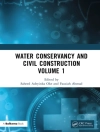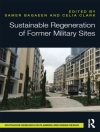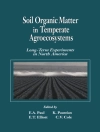This book provides essential information on the role of phytonanotechnology in the removal of environmental pollutants and covers recent advances in experimental and theoretical studies on plant-derived nanoparticles. It also discusses their current and potential applications and challenges.
The combination of nanotechnology and phytoremediation, which is called phytonanotechnology, have the potential to remove contaminants from the environment or degrade them. The efficiency of contaminant removal can be improved by combining both methods as they are complementary to each other.
Phytonanotechnology offers the advantages of increased bioavailability, prolongation of heavy metal absorption time, and multiple metal removal, all contributing to improved efficacy and decreased toxicity in plants and surroundings. Therefore, there is immense scope for nature-derived molecules to be formulated into nanotechnology-based phytoremediation approaches targeting the specific heavy metal removal from effluents and surroundings. This encourages research initiatives to synthesize more phytonanotechnology based uptake plant systems with high efficiency. Efficient formulation targeting strategies and the evaluation of targeting efficiency of phytonanotechnology, conforming to international standards of their toxicology and biocompatibility, could pave the way for heavy metal uptake and removal by plant-based systems.
This book serves as a valuable resource for postgraduate students, environmental scientists and materials scientists in academia and corporate research.
Tabella dei contenuti
– Plant synthesized nanoparticles for dye degradation.- Plant-Mediated Green Synthesis of Nanoparticles for Photocatalytic Dye Degradation.- Plant-derived nanoparticles for heavy metal remediation.- Biomedical applications of phytonanotechnology.- Application of nanotechnology in plant secondary metabolites production.- Applications of Nanotechnology in Preservation and Development of the Plants: A Look Back.- Environmental applications of Phytonanotechnology: a promise to sustainable future.- Phytonanotechnological Approach for Silver Nanoparticles: Mechanistic Aspect, Properties and Reliable Heavy Metal Ion Sensing.- Plant Material Assisted Magnetic Nanoparticles (MNPs) for the Separation of Inorganic Pollutants.- Environmental Applications of Green Engineered Silver Nanoparticles.- Bioremediation of heavy metal contaminated sites using phytogenic nanoparticles.- Environmental applications of green engineered copper nanoparticles.- Plant mediated nanocomposites for water remediation.- Photocatalytic degradation of dye from various metal/metal oxides derived from diverse plants.- Phytonanotechnology for the removal of pollutants from the contaminated soil environment.
Circa l’autore
Dr. Maulin P. Shah is interested in genetic adaptation processes in bacteria. He has more than 120 research publications in highly reputable national and international journals. He directs the research program at Enviro Technology Ltd., Ankleshwar, India. He has guided more than 100 post-graduate students in various disciplines of life science. He is an active editorial board member in more than 150 renowned journals in the field of environmental and biological sciences. He was the founder and editor-in-chief of the International Journal of Environmental Bioremediation and Biodegradation (2012–2014) and the Journal of Applied & Environmental Microbiology (2012–2014) [Science and Education publishing (Sci EP), USA]. He is also serving as a reviewer for various journals of national and international repute. Recently, he has been awarded a Young Biotechnologist Medal by the Biotechnological Society of Nepal. He has edited 115 books in the area of wastewater microbiology and industrialwastewater Treatment. He is the Editor In Chief of Biotechnology & Genetic Engineering Reviews- Taylor & Francis.
Arpita Roy is currently working as an assistant professor in the Department of Biotechnology, Sharda University, India, with a specialisation in plant biotechnology, nanobiotechnology, environmental biotechnology and microbiology. She has been teaching graduate- and postgraduate-level biotechnology. She has taught topics related to plant biotechnology, microbiology, bioprocess engineering and solid waste management. She has authored more than 25 scientific articles and 14 book chapters. She has participated and presented at numerous state, national and international conferences, seminars, workshops and symposiums. She has received the Commendable Research Award for excellence in research during the years 2019, 2020 and 2021 from Delhi Technological University, and she has served as an editorial board member and reviewer of international journals.












